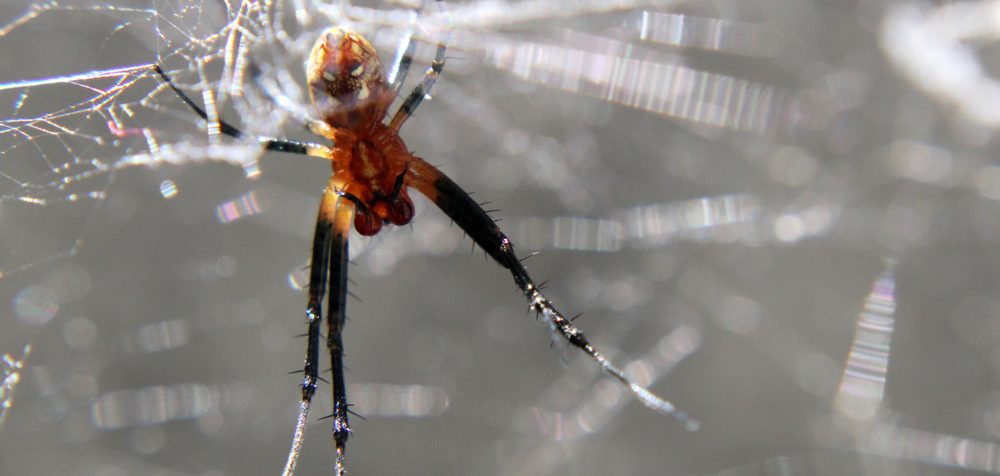
Researchers at Rensselaer Polytechnic Institute have developed a strain of bacteria that can turn polyethylene plastic into a “bio-inspired spider silk” with potential applications for use in textiles, cosmetics, and medicine.
“Spider silk is nature’s Kevlar,” said Dr. Helen Zha, one of the researchers leading the project. “It can be nearly as strong as steel under tension. However, it’s six times less dense than steel, so it’s very lightweight. As a bioplastic, it’s stretchy, tough, non-toxic, and biodegradable.”
The team used Pseudomonas aeruginosa, a bacteria that naturally consumes polyethylene. They were able to engineer the bacteria to convert the carbon atoms of polyethylene into a genetically encoded silk protein. Their modified bacteria is able to make the silk protein at a yield rivaling some bacteria strains that are currently used in biomanufacturing.
“Essentially, the bacteria are fermenting the plastic. Fermentation is used to make and preserve all sorts of foods, like cheese, bread, and wine, and in biochemical industries it’s used to make antibiotics, amino acids, and organic acids,” said Mattheos Koffas, another project leader.
To facilitate fermentation of the polyethylene, the plastic must first be “predigested,” as it is made up of long molecule chains, or polymers, which the bacteria has difficulty eating. The RPI team worked with researchers at Argonne National Laboratory who depolymerized the plastic by heating it under pressure, producing a soft, waxy substance. A layer of this plastic-derived wax was placed on the bottoms of flasks, which served as the nutrient source for the bacteria culture, much as sugar is used with typical fermentation. After 72 hours, the bacteria is removed from the liquid culture, the resultant silk protein is purified, and then freeze dried. The protein is then ready to be spun into thread or made into other useful forms.
“What’s really exciting about this process is that, unlike the way plastics are produced today, our process is low energy and doesn’t require the use of toxic chemicals,” Zha said. “The best chemists in the world could not convert polyethylene into spider silk, but these bacteria can. We’re really harnessing what nature has developed to do manufacturing for us.”
The team is now seeking ways to make the silk protein more efficiently.
“This study establishes that we can use these bacteria to convert plastic to spider silk. Our future work will investigate whether tweaking the bacteria or other aspects of the process will allow us to scale up production,” Koffas said.
